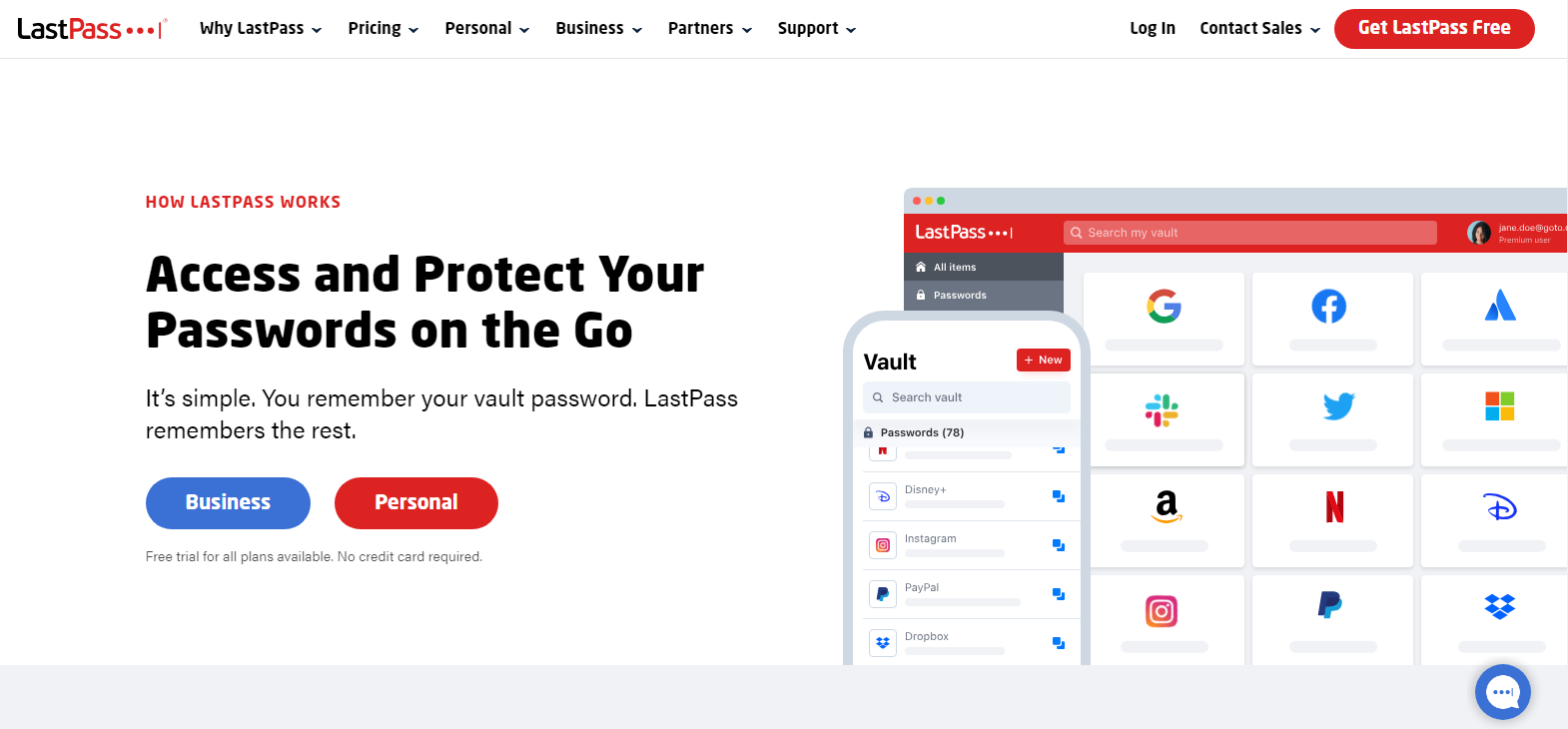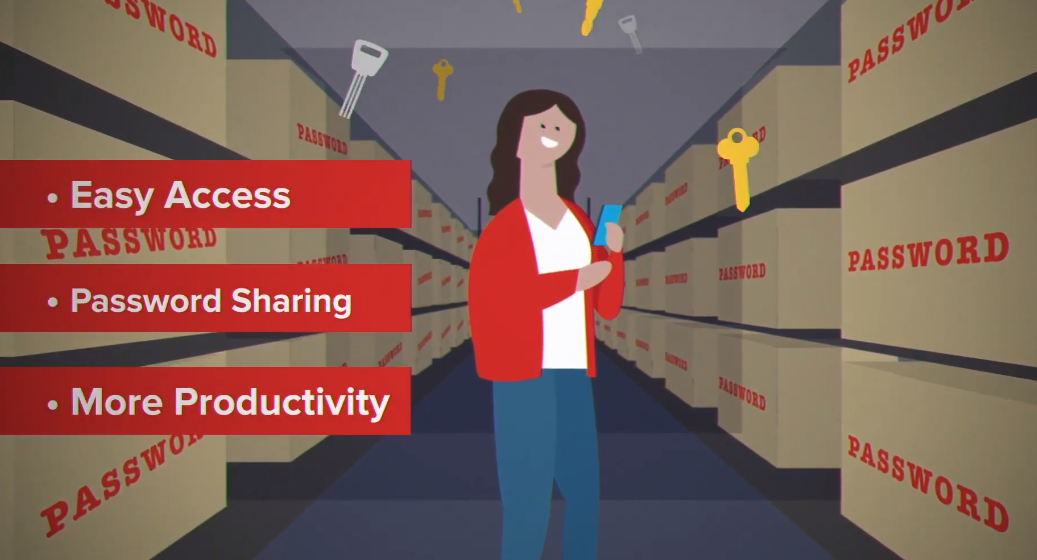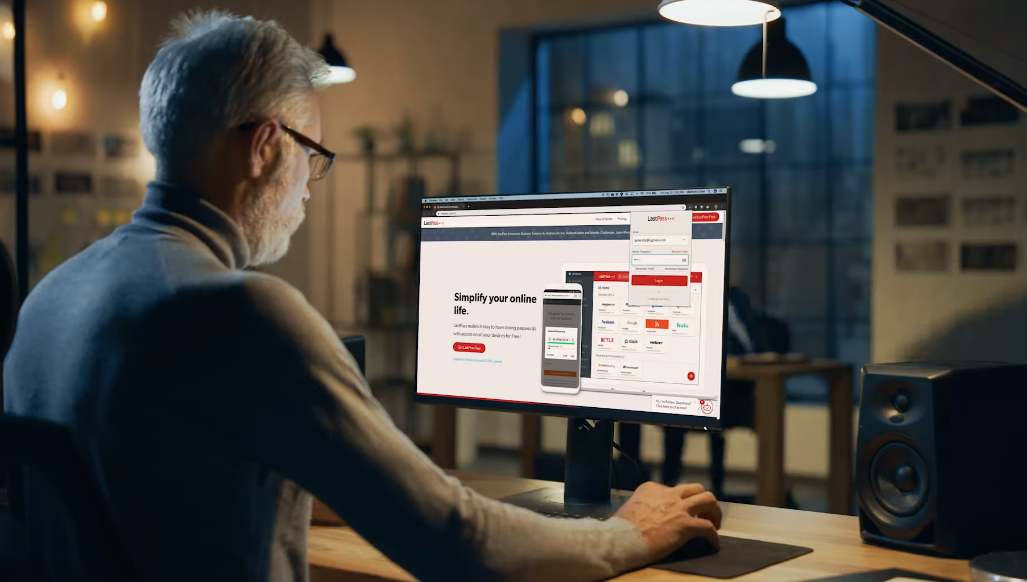Understanding LastPass

LastPass is a password management tool that helps users securely store and manage their passwords. It allows users to create a master password, which is the only password they need to remember. LastPass then generates and stores unique, strong passwords for each of the user’s online accounts. With LastPass, users can automatically fill in login credentials for websites and apps, eliminating the need to remember or type passwords. It also offers features like password sharing, secure notes, and form filling.
Key Features And Benefits

– Securely stores and manages passwords
– Requires users to remember only one master password
– Generates unique and strong passwords for each online account
– Automatically fills in login credentials for websites and apps
– Eliminates the need to remember or type passwords
– Offers password-sharing feature
– Allows users to securely store and access important notes
– Provides form-filling functionality for faster and easier online form completion
– Enhances overall online security and reduces the risk of password-related vulnerabilities.
Encryption Techniques
Introduction to Encryption in LastPass
Encryption is a crucial aspect of LastPass, ensuring the security and privacy of your sensitive information. LastPass uses various encryption techniques to protect your data. One of the key encryption methods employed is AES-256, which stands for Advanced Encryption Standard with a key size of 256 bits. AES-256 is widely recognized as a secure encryption algorithm and is used by governments, financial institutions, and security-conscious organizations worldwide.
How LastPass uses AES-256 Encryption
LastPass utilizes AES-256 encryption to safeguard your data. This encryption method applies a 256-bit key to encrypt and decrypt your information. AES-256 is considered highly secure and is extensively used to protect sensitive data. By employing AES-256 encryption, LastPass ensures that your passwords and other confidential data are well-protected.
Salted Hashing for Additional Security
LastPass also uses salted hashing to enhance security. Salted hashing is a technique that adds a random string of characters (known as salt) to the password before it is hashed. This makes it more difficult for attackers to crack passwords using precomputed hash tables (rainbow tables) or brute-force attacks. By combining AES-256 encryption with salted hashing, LastPass provides an additional layer of security to protect your sensitive information.
Data Storage and Transfer

Secure Cloud-Based Storage
LastPass uses secure cloud-based storage to store and transfers your sensitive information. This ensures that your data is encrypted and protected while it is being stored and transmitted. The use of cloud-based storage allows for easy access to your information from any device, while still maintaining a high level of security.
Zero-Knowledge Architecture in LastPass
LastPass utilizes a zero-knowledge architecture to further enhance the security of your sensitive information. This means that your data is encrypted and decrypted locally on your device, and LastPass has no knowledge or access to your encryption keys or master password. This ensures that even if LastPass were to be compromised, your data would remain secure.
Encryption During Data Transfer
During data transfer, LastPass uses industry-standard SSL/TLS encryption to protect your information. This ensures that any data transmitted between your device and LastPass servers is encrypted and cannot be intercepted or tampered with by third parties. This encryption ensures the confidentiality and integrity of your data while it is being transferred.
Password Management Practices
Generating Strong And Unique Passwords
Generating strong and unique passwords is an important password management practice. By using a combination of uppercase and lowercase letters, numbers, and special characters, you can create passwords that are difficult for hackers to guess. Additionally, it is crucial to use a different password for each of your accounts to minimize the risk of a single password compromise leading to multiple account breaches. LastPass can generate and store these strong and unique passwords for you, making it easier to maintain good password hygiene.
Auto-Fill And Auto-Login Features
Auto-fill and auto-login features can be convenient, but they also come with certain risks. While they save you time by automatically filling in your login credentials, they can also be exploited by malicious software or hackers. It is important to use these features with caution and consider the potential security implications.
LastPass Mobile App Security
The LastPass mobile app provides several security measures to protect your passwords and sensitive information. These include:
1. Encryption: LastPass uses AES-256 bit encryption with PBKDF2 SHA-256 and salted hashes to ensure that your data is securely stored and transmitted.
2. Two-factor authentication (2FA): You can enable 2FA to add an extra layer of security to your LastPass account. This can include using a fingerprint or a one-time password generated by an authentication app.
LastPass Enterprise and Business Security
LastPass Enterprise and Business Security offer additional security measures to protect your passwords and sensitive information. These include:
1. Single Sign-On (SSO): LastPass supports SSO integration with popular identity providers, allowing users to securely authenticate and access multiple applications with a single set of credentials.
2. Directory Integration: LastPass can integrate with your existing directory services, such as Active Directory or LDAP, to streamline user provisioning and de-provisioning and ensure centralized control over user access.
Conclusion
In conclusion, LastPass offers several features to enhance the security of your passwords and sensitive information. These include Single Sign-On (SSO) integration with popular identity providers and directory integration with existing directory services. By utilizing these features, users can securely authenticate and access multiple applications with a single set of credentials and ensure centralized control over user access.
Frequently Asked Questions (FAQs)
How secure is LastPass?
LastPass is designed with strong security measures to protect your passwords and sensitive information. It uses end-to-end encryption, which means that your data is encrypted and decrypted locally on your device, and only the encrypted data is stored on LastPass servers. Additionally, LastPass has implemented various security features, such as two-factor authentication, to provide an extra layer of protection for your account
Can LastPass employees access user data?
No, LastPass employees cannot access user data. LastPass uses a zero-knowledge security model, which means that only you have access to your passwords and sensitive information. The encryption and decryption process is done locally on your device, so even LastPass employees cannot access your data.
What happens if LastPass experiences a breach?
If LastPass experiences a breach, they have measures in place to mitigate the impact and protect user data. LastPass employs advanced security protocols and encryption algorithms to safeguard user information. In the event of a breach, LastPass will promptly investigate and take necessary actions to address the issue, including notifying users and providing guidance on steps to secure their accounts. It is important for users to regularly update their passwords and enable additional security features, such as two-factor authentication, to further protect their accounts.
Is LastPass recommended for sensitive data?
Yes, LastPass is recommended for sensitive data. It utilizes advanced security protocols and encryption algorithms to safeguard user information, and in the event of a breach, LastPass promptly investigates and takes necessary actions to address the issue. Users are also provided with guidance on steps to secure their accounts. Additionally, LastPass recommends users regularly update their passwords and enable additional security features like two-factor authentication for further protection.
How often should I update my master password?
It is generally recommended to update your master password regularly, preferably every 3-6 months, to enhance the security of your LastPass account.
Can LastPass be used offline?
Yes, LastPass can be used offline. LastPass allows you to access your stored passwords and other information even when you are not connected to the internet. However, any changes or updates you make to your account while offline will be synced with the LastPass servers once you regain an internet connection.
What are the alternatives to LastPass?
There are several alternatives to LastPass that you can consider:1. 1Password: 1Password is a popular password manager that offers strong security features and a user-friendly interface. It supports multiple platforms and provides features like password generation, secure storage, and autofill.
2. Dashlane: Dashlane is another widely used password manager that offers features like password generation, secure storage, and autofill. It also provides additional features like VPN and dark web monitoring.
